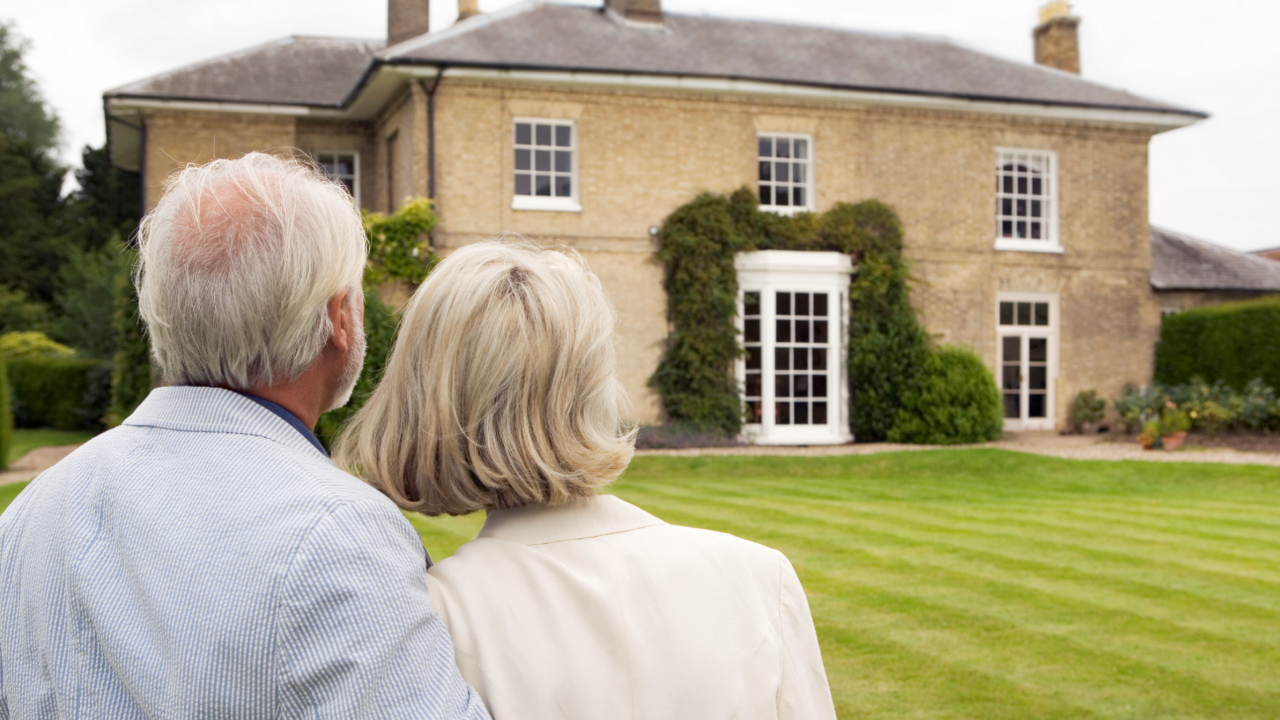MPs criticise 'wealth-hoarding' boomers stereotype

The committee said frequent depictions of older people as wealthy homeowners normalised "ageist attitudes"
- Published
MPs have warned against "ageist stereotyping" that characterises older people as stockpiling wealth as younger generations struggle.
A report from the Commons' women and equalities committee, external said the portrayal was normalising "ageist attitudes".
They criticise depictions of baby boomers - those born between 1946 and 1964 and now in their 60s and 70s - as either frail or enjoying a life of luxury at the expense of their children and grandchildren.
The report also hits out at what the authors say was a failure by previous governments to address digital exclusion of older people as services, particularly around banking and health, increasingly move online.
'Our winter fuel payment goes into the holiday kitty'
- Published14 September 2024
Why women and young people could hold more wealth in future
- Published22 August 2024
Starmer wants to act tough to fix long-term problems - but is he avoiding the trickiest?
- Published14 September 2024
The UK's population continues to get older overall, with 11 million people in England and Wales now aged over 65, and more than half a million people aged over 90.
In its report, the committee said the portrayal of older people as "wealth-hoarding 'boomers'" was "highly prevalent across all media in the UK".
An example might be the "OK Boomer" meme used to dismiss older people's opinions by suggesting they are out of touch.
It also said discussion of intergenerational fairness tended to "pit younger and older generations against each other in a perceived fight for limited resources".
The MPs pointed to a 2020 report from the Centre for Ageing Better, which looked at the portrayal of older people on television, in magazines and in advertising.
They also said witnesses to their inquiry, on the rights of older people, said older people were "frequently stereotyped as wealthy "boomers" living comfortable lives in homes they own while younger generations struggle on low incomes, unable to afford to enter the housing market and struggling with high rents".
The Commons committee wants to see a crackdown on these sorts of stereotypes by watchdogs including the Advertising Standards Authority and the broadcast media regulator Ofcom.
On average individual wealth increases with age, peaking in the 60-to-64 age group at a level nine times as high as the 30-to-34 age group, according to the Office for National Statistics.
Younger generations are also less likely to own their own home than their predecessors.
However, the report pointed to evidence suggesting this ignores inequalities within generations.
'Digital exclusion'
Some older people are also still at high risk of "digital exclusion", MPs believe, because they do not have the skills to access online banking, council or GP services - despite the government launching a digital inclusion strategy, external 10 years ago.
Latest figures from Ofcom say nearly one-in-three people (29%) aged over 75 do not have access to the internet at home, compared to roughly one-in-16 (6%) of all adults.
The Commons report concludes that existing laws against age discrimination are too weak and "failing older people" because they are rarely enforced, despite evidence of the harm such attitudes cause.
Committee chairwoman Sarah Owen, a Labour MP for Luton North, said it was time for a review of how to shrink the UK's "pervasively ageist culture" and bring in enforcement with teeth.
"It is a considerable failure of government that the digital inclusion strategy has not been updated, nor progress tracked, for a decade," she said.
"Ultimately much more must be done to tackle ageist attitudes and discrimination across society, including in access to healthcare, local services, banking and transport."
Owen is calling for the UK government to follow the Welsh example of establishing a commissioner for older people alongside community champions to deliver a national strategy.
A government spokesperson said: "The Equality Act contains strong protections for older people in a variety of settings, including work and the provision of services.
"We recognise the importance of older people and the challenges they face. That is why we are putting more money into pensioners' pockets through our commitment to the triple lock - which is set to increase the state pension by up to £1,900 this Parliament."
Get in touch
How have you been affected by the issues raised in this story?

Sign up for our Politics Essential newsletter to read top political analysis, gain insight from across the UK and stay up to speed with the big moments. It'll be delivered straight to your inbox every weekday.